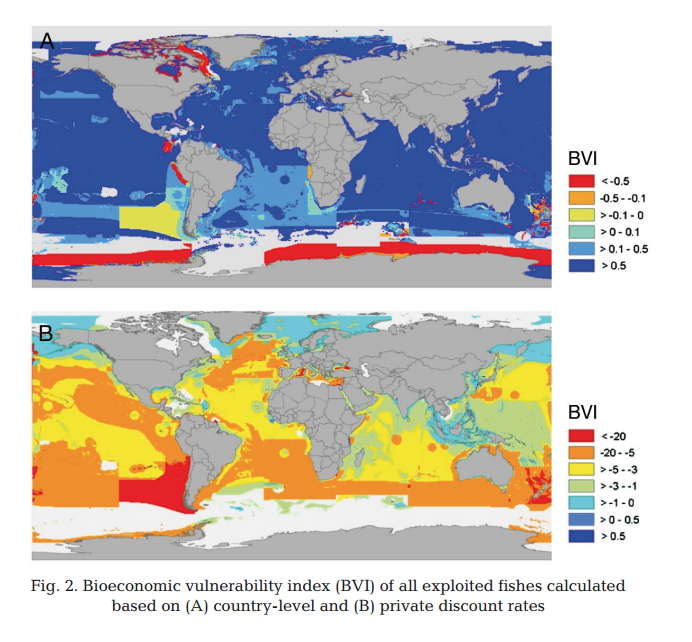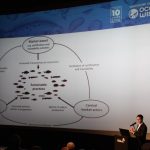William Cheung, Co-Director of the Nereus Program and Principle Investigator, and Rashid Sumaila, Director of the UBC Fisheries Economics Research Unit, have been published in Marine Ecology Progress Series on “Economic incentives and overfishing: a bioeconomic vulnerability index”. (DOWNLOAD PDF)
Abstract:
Bioeconomic theory predicts that the trade-offs between maximization of economic benefits and conservation of vulnerable marine species can be assessed using the ratio between the discount rate of fishers and the intrinsic rate of growth of the exploited populations. In this paper, we use this theory to identify areas of the global ocean where higher vulnerability of fishes to overfishing would be expected in the absence of management. We derive an index to evaluate the level of vulnerability by comparing discount rates and fishes’ intrinsic population growth rates. Using published discount rates of countries that are reported to fish in the ocean and estimating the intrinsic population growth rate for major exploited fishes in the world, we calculate the vulnerability index for each 0.5° latitude × 0.5° longitude grid for each taxon and each fishing country. Our study shows that vulnerability is inherently high on the northeastern coast of Canada, the Pacific coast of Mexico, the Peruvian coast, in the South Pacific, on the southern and southeastern coast of Africa, and in the Antarctic region. It should be noted that this index does not account for the management regime currently in place in different areas, and thus mainly reflects the vulnerability resulting from the intrinsic life history characteristics of the fish species being targeted and the discount rates of the fishers exploiting them. Despite the uncertainties of this global-scale analysis, our study highlights the potential applications of large-scale spatial bioeconomics in identifying areas where fish stocks are more likely to be over-exploited when there is no effective fisheries management; this applies to many fisheries around the world today.

READ MORE: William Cheung







